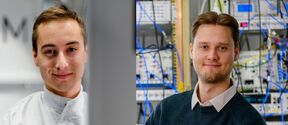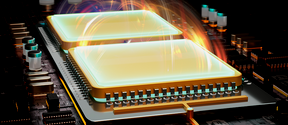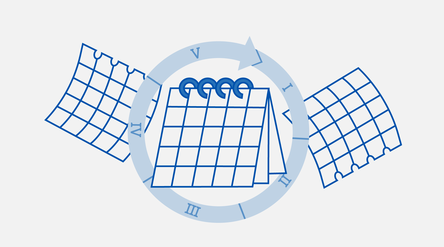Department of Applied Physics Diversity Team
The Diversity Team of the Department of Applied Physics aims to build an inclusive, diverse and welcoming work environment

Our research focuses on materials physics, quantum technology, soft and living matter, and advanced energy solutions. Topics extend from fundamental research to important applications. The Department of Applied Physics educates future generations of research and development professionals, data specialists, technology experts, inventors and scientists for industry and society.
The department hosts the Academy of Finland Centres of Excellence Quantum Technology Finland (QTF, 2018-2025) and Life Inspired Hybrid Materials (LIBER, 2022-2029). Further quantum technologies are facilitated by InstituteQ, the national quantum institute coordinated by Aalto University since 2021.
The department is a major user of the national research infrastructure OtaNano which provides fabrication, characterisation and measurement equipment and facilities for students, scientists and high-tech businesses. The Nanomicroscopy Center and the Low Temperature Laboratory of OtaNano are critical assets for our researchers. We extensively utilise and contribute to the development of the national and international cloud and supercomputing resources and databases.










Research group working on physics of soft and living materials
We focus on the experimental study of nanostructures, where the precise nature and location of every atom matters.
Applies statistical physics to a wide variety of cross-disciplinary topics.
CEST is developing electronic structure and machine learning methods and applying them to computational materials science problems.
Correlated Quantum Materials Group (CQM)
Energy Materials & Interfaces (EMI) is a multidisciplinary research group focusing on mechanistic understanding of electrochemical energy materials & technologies, advanced characterization techniques, and degradation & failure mechanisms.
The Fusion and Plasma Physics group at Aalto University investigates plasma phenomena in magnetically confined fusion plasma physics both experimentally and by computer simulations. The overall goal is to create a new, clean and virtually unlimited energy source.
We develop new experimental and analytical tools to probe the dynamics and flow in mesoscale living, fluid, and soft systems. We perform curiosity-driven research to make discoveries in soft matter physics and at the interface between physics and biology.
We use experimental quantum optics methods in discrete and continuous variables to study quantum phenomena in large-scale and complex systems.
Molecular Materials (Molmat) is a multidisciplinary research group consisting of physicists, chemists and biologists aiming at functional materials based on supramolecular and supracolloidal self-assembly and its hierarchies.
The MSP group is recognised worldwide in the development of multi-scale and coarse-graining methodologies and their application to condensed matter systems.
Our research focuses on experimental studies of magnetic, magneto-optical, and spin-transport phenomena in new functional materials and hybrid nanoscale structures.
The NanoMaterials Group, headed by Prof. Esko I. Kauppinen, is among the top aerosol technology laboratories in the world and offers a unique environment for strong interdisciplinary research and a proven track record of productive cooperation.
The interest of the New Energy Technologies Group is on advanced energy systems, in particular nanomaterials for energy devices, sustainable energy systems, and multidisciplinary energy science.
The Nuclear Materials and Engineering group employs computational methods to study radiation induced processes and damage formation in materials.
The research of the Optics and Photonics group covers a range of topics of modern optics and photonics, encompassing various aspects of light-matter interaction, optical coherence and polarization, development of methods to manipulate light with nano- and micro-structures, design and construction of novel light sources, optical metamaterials and optical imaging.
We investigate mesoscopic physics and its sensor applications. The main focus is on charge transport and thermal properties of metallic, superconducting and hybrid nanostructures.
Nano group of the Low Temperature Laboratory investigates fundamental quantum phenomena in nanostructures using low temperature and electronic transport measurements.
We have a major effort on experimental low-temperature physics, but we also carry out computational and theoretical work down to fundamental quantum mechanics.
The research interests of the QD group are quantum coherent dynamics and quantum many-body phenomena in designed nanosystems.
The NEMS group focuses on studies of micro- and nanomechanical resonators near the quantum ground state of moving objects.
The QNOF group is using nanomechanical oscillators and optomechanical techniques to realize force measurements.
The research group works on theoretical problems in quantum transport.
Functional soft materials and wettability of surfaces are the key research interests of Soft Matter and Wetting research group at Aalto University Department of Applied Physics.
Our group is part of the effort in nanoelectronics in the Low Temperature Laboratory, Department of Applied Physics. The group is doing research in such fields as quantum information and quantum-level effects in superconducting devices, quantum coherent matter, and interaction of electromagnetic fields with nano-structured materials.
In the SIN group we apply and develop various atomistic and quantum mechanical simulation methods to study surface and interface physics at the nanoscale, with particular emphasis on working closely with experimentalists and technologists.
Our research is focused on topological superfluid ³He at ultra-low temperatures

The Diversity Team of the Department of Applied Physics aims to build an inclusive, diverse and welcoming work environment

Aalto University is where science and art meet technology and business. We are an international community of 20,000 bold thinkers who shape a sustainable future with education, research breakthroughs and innovative ideas and solutions. Join us in changing the world – we have many attractive career opportunities to offer.
The goal at InstituteQ is to improve the readiness of Finland for the disruptive potential quantum technologies will have for society and the economy at large. By 2026, novel educational programs, growing quantum industry and eminent research directions are expected to be in full motion. The efforts of InstituteQ facilitate fundamental scientific findings, the adoption of novel technologies and the development of new commercial opportunities. The aim is to carry, implement and mutually benefit front line education, research, innovations, and infrastructures.

InstituteQ coordinates quantum research, education, and business in Finland

The national Quantum Technology Finland (QTF) Centre of Excellence brings together scientific and technological excellence and cutting-edge research infrastructures to harness quantum phenomena in solid-state-based quantum devices and applications.

The flagship unites dozens of research institutions, companies, and startups in new collaborative front




Puumiehenkuja 2
Konemiehentie 1

Tietotie 3

Otakaari 1
